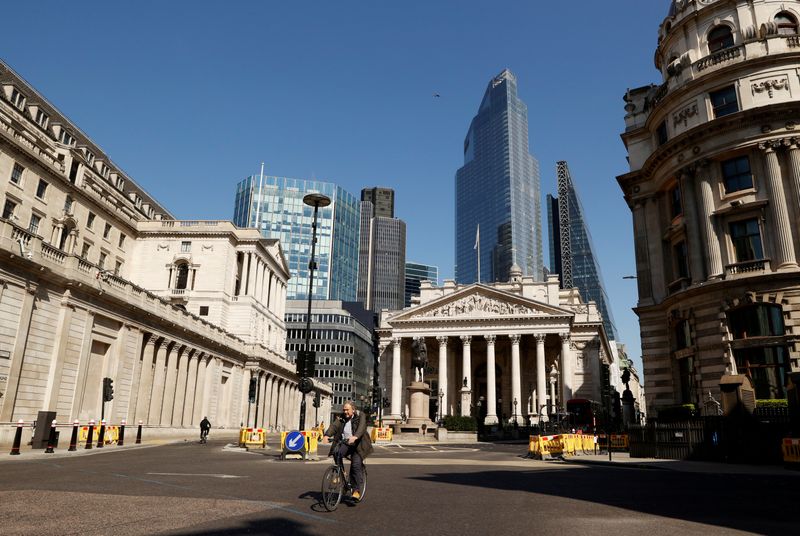LONDON (Reuters) – The Bank of England said on Thursday that it and the government needed to make it more attractive for insurers, pension and investment funds to take long-term stakes in companies recovering from the financial impact of COVID-19.
Britain’s government has been trying for several years to encourage finance for longer-term investment projects that offer a less certain return and were not suitable for banks.
Some businesses that were borrowing during the pandemic would want to raise equity to pay back their debts. Other businesses might want to raise equity to fund growth, which can be difficult for firms that are too small to list on the stock exchange, Alex Brazier, the BoE’s Executive Director for Financial Stability Strategy and Risk said in a speech to the financial industry.
A 1% shift in investment towards unlisted equity would raise around 50 billion pounds ($64 billion), Brazier said. That is roughly the amount of money lent by banks under the government’s emergency coronavirus lending programmes.
“The need for more equity finance creates a case for authorities to be ambitious in reforming the financial system to remove any biases against the patience that’s needed for many equity investments,” he said.
“Even investors who should have the longest horizons seem to have a fetish for liquidity and an aversion to really illiquid growth capital assets.” he said.
One route would be to change regulation so that any investment funds which promise to let investors withdraw money instantly, even when it is invested in illiquid assets, had to enforce more realistic redemption periods.
This would remove an advantage they had against funds which advertised more realistic redemption periods, or issued shares which traded on a secondary market.
A government review of how Solvency II insurance rules were applied in Britain now that it had left the European Union should also look at whether insurers could invest more in equity while retaining their existing financial resilience.
Finally, many pension funds published daily valuations – which discourage investment in illiquid assets – even though there was no legal requirement, Brazier added.
(Reporting by David Milliken, editing by Andy Bruce and Elaine Hardcastle)



















